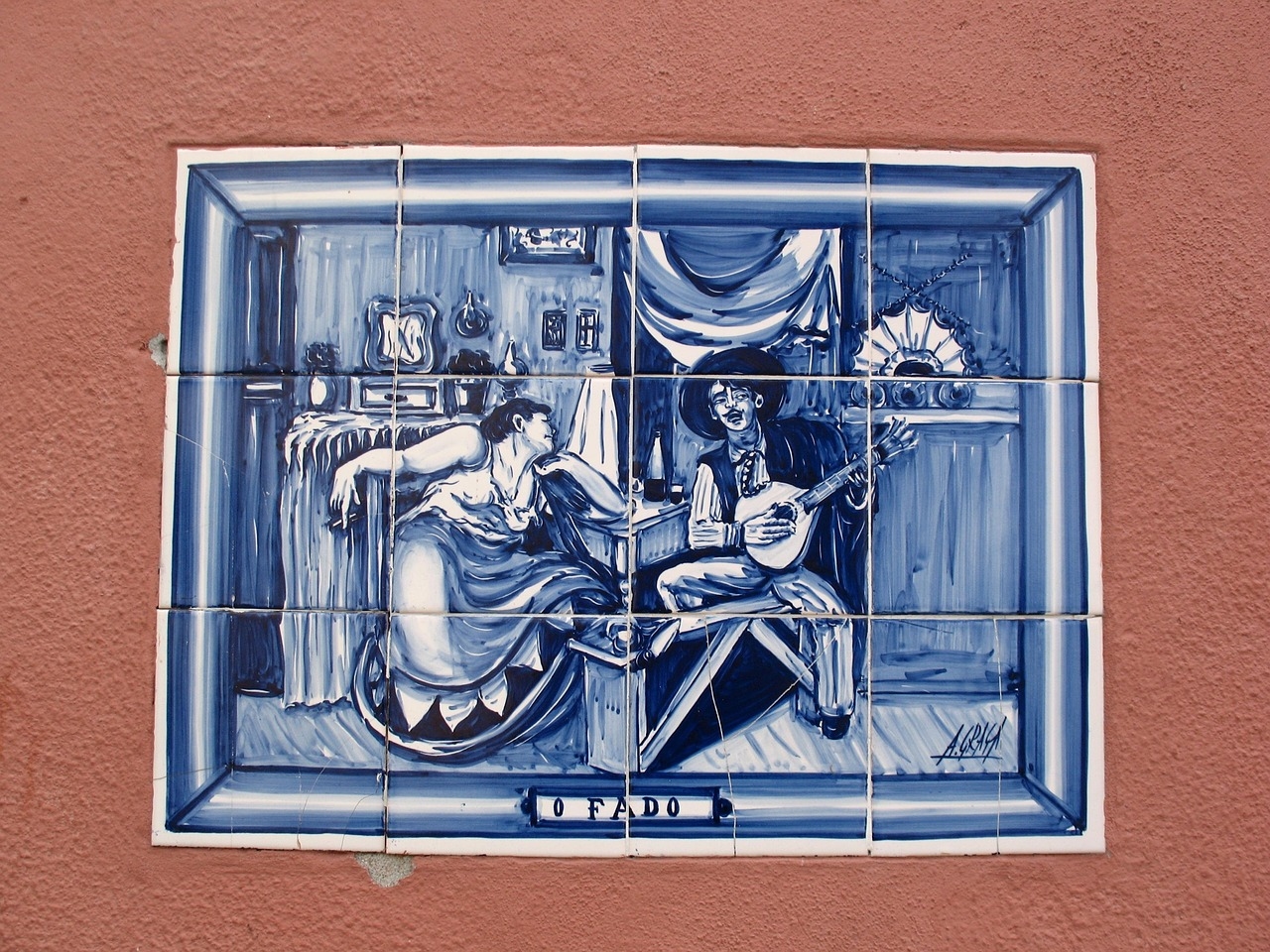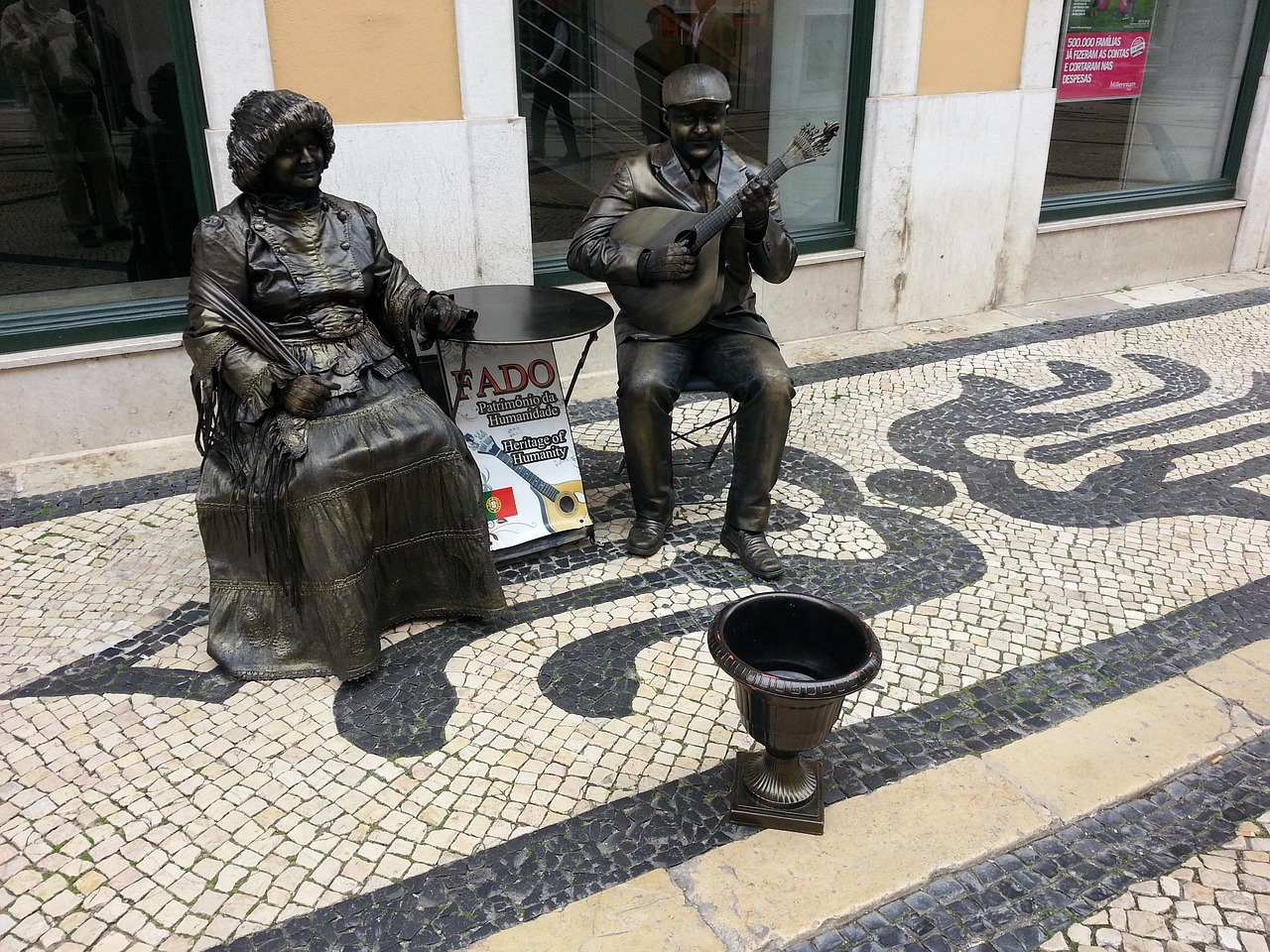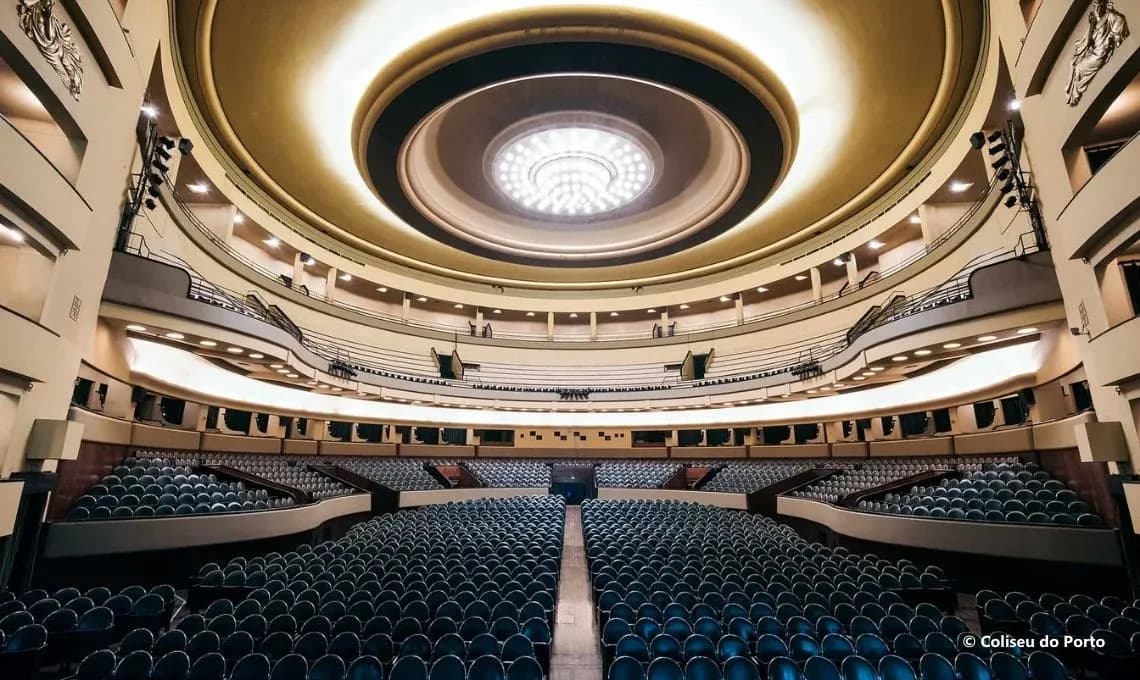
Fado, inscribed in 2011 by UNESCO as part of the Intangible Cultural Heritage of Humanity, is much more than a simple musical genre: it is an expression of the Portuguese soul. This deep, emotional singing, accompanied by the Portuguese guitar and classical guitar, conveys saudade — that unique blend of nostalgia, melancholy, and hope that so perfectly defines the Portuguese spirit.
While Lisbon is its undisputed birthplace, Porto has developed its own venues and traditions, where fado is experienced with intimacy and authenticity. For anyone visiting Portugal, attending a fado performance is an essential experience — as meaningful as tasting salted cod or visiting a Douro vineyard. But where can you hear real, authentic fado while avoiding overly touristy spots? This guide reveals the best places to experience fado in its two symbolic cities.
Fado in Lisbon: the capital of saudade
Alfama, the beating heart of fado
Alfama, with its steep, winding alleys and tiled façades, is the historical heart of fado. Since the 19th century, its taverns have welcomed sailors, workers, and singers. Today, you’ll find both legendary venues and smaller, hidden gems.
- Clube de Fado: a prestigious venue frequented by renowned artists, where traditional cuisine accompanies performances of the highest quality.
- Parreirinha de Alfama: founded by a former fado singer, it’s closely associated with the memory of Amália Rodrigues.
- Mesa de Frades: located in a former Baroque chapel, it offers intimate and exclusive performances.
Bairro Alto, between bohemia and tradition
Known for its nightlife and lively bars, Bairro Alto also houses some of Lisbon’s most iconic fado venues.
- Adega Machado: founded in 1937, it has modernized without losing its authenticity.
- Café Luso: set in a vaulted cellar, it’s renowned for the quality of its artists and its elegant atmosphere.
Mouraria, the popular cradle
It was in Mouraria that Maria Severa, the first great fado singer, lived in the 19th century. The neighborhood maintains its popular roots and still hosts evenings of fado vadio — spontaneous, amateur fado performed with passion in small taverns and bars.

Fado in Porto: intimacy and proximity
Although Porto does not have Lisbon’s fame, it offers more authentic, less touristic experiences.
- Casa da Mariquinhas: founded in 1968 near the cathedral, it is one of the city’s best-known fado houses, serving traditional dishes alongside top-quality performances.
- Ideal Clube de Fado: a unique concept in Porto, where musicians explain the meaning of each song and interact with the audience, creating an educational and emotional experience.
- Taberna Real do Fado: a small venue where the closeness between artists and audience fosters a warm, family-like atmosphere.
In Porto, fado feels like a conversation between musicians and listeners — less staged, more heartfelt.
Professional fado vs. fado vadio
Fado can generally be experienced in two forms:
- Professional fado: performed by experienced singers in established venues. These shows often include dinner and follow a structured program.
- Fado vadio: literally “wandering fado,” sung spontaneously by amateurs. Less technical but deeply emotional, it represents fado’s purest essence, born from everyday life.
Evenings of fado vadio are most common in Alfama and Mouraria, though some cultural cafés in Porto also host them.
Tips for enjoying an authentic fado night
- Book in advance: the best venues fill up quickly.
- Choose according to the atmosphere: elegant (Clube de Fado), popular (Mouraria), or educational (Ideal Clube de Fado).
- Arrive early: fado is meant to be savored slowly, often over dinner.
- Respect the silence: during performances, attention and quiet are essential.
- Avoid overly touristy spots: smaller, less advertised venues often provide the most genuine experience.
Festivals and alternative venues
Beyond traditional fado houses, there are also festivals and cultural spaces dedicated to the art:
- Caixa Alfama Festival: held every September, this event gathers dozens of artists throughout the streets of Alfama.
- Fado Museum (Lisbon): features exhibitions, archives, and concerts that explore the evolution of the genre.
- Open-air concerts: during the summer, both Lisbon and Porto host fado performances in public gardens and squares, open to all.
Contemporary evolution of fado
Though fado remains rooted in tradition, it has evolved through modern artists such as Mariza, Ana Moura, and Camané, who have brought it to international stages.
In Lisbon and Porto, some venues now offer creative fusions with jazz or multimedia elements, attracting younger audiences.
This evolution proves that fado is not a static art form, but a living language — constantly reinvented yet always faithful to its emotional depth.
Conclusion
Listening to fado in Lisbon or Porto is more than just attending a concert: it’s immersing yourself in a tradition that expresses the deepest identity of Portugal. Lisbon offers the intensity of its historic neighborhoods; Porto, the intimacy of its small venues.
In both cities, fado is an encounter — between the artist and the audience, between saudade and the joy of sharing. Whether sung by a celebrated performer or an impassioned amateur, fado remains the truest expression of the Portuguese soul.
Share this article
Suggested articles

Portugal’s Legendary Concert Halls: Coliseu, Altice Arena, Casa da Música
Every country has its sacred stages, those places where emotions turn into something timeless. In Portugal, three venues stand above all others: the Coliseu, the Altice Arena, and the Casa da Música. Each one captures a different heartbeat of the nation — the nostalgic, the modern, and the visionary.

International Tours Stopping in Lisbon
Not so long ago, most world tours stopped in Madrid, Paris or London, and Lisbon was often overlooked. Now, the city has become one of Europe’s most exciting musical destinations. From Coldplay to Madonna, from Harry Styles to The Weeknd, the biggest names are filling Lisbon’s arenas and stadiums.

Carminho, Mariza and the new wave of contemporary fado
If you thought fado was confined to the old neighbourhoods of Lisbon, dim lights, and voices soaked in nostalgia, think again : today, it’s taking a whole new turn. It dares, it creates, it blends genres and two names are leading the movement : Carminho and Mariza. Two voices, two paths, but one shared mission : to keep fado alive, to respect it, while making it contemporary (yes, it’s possible !)


